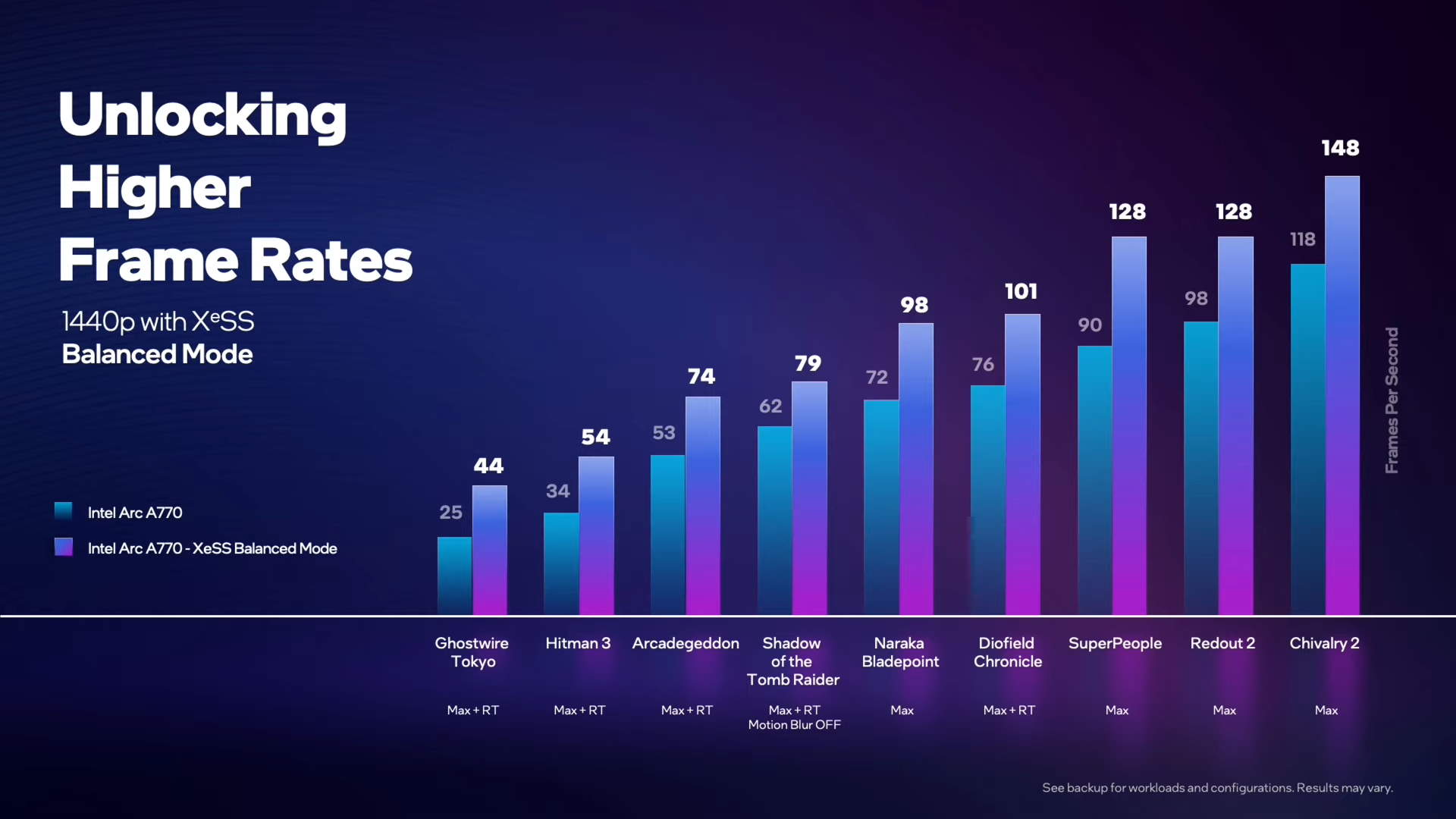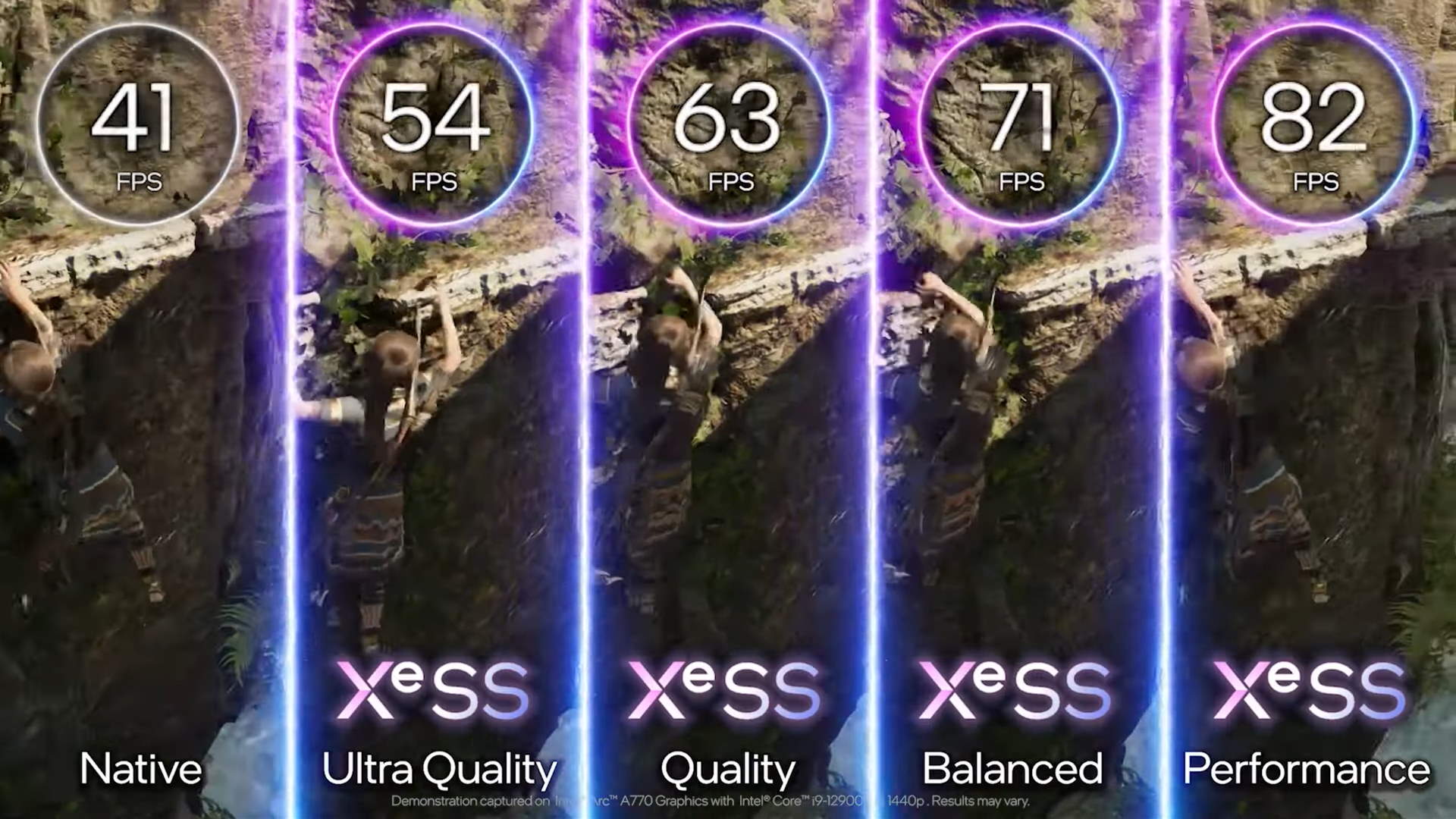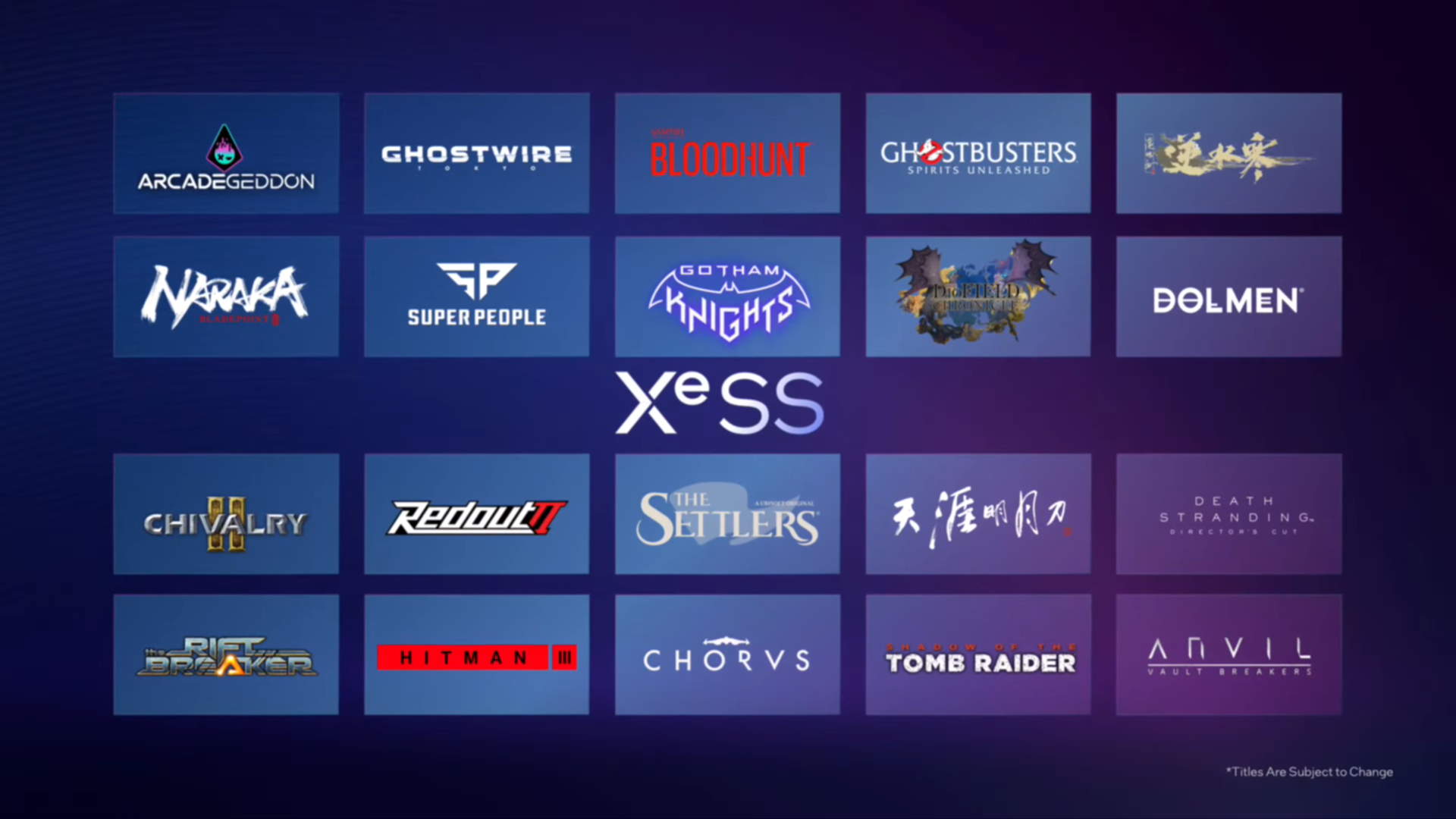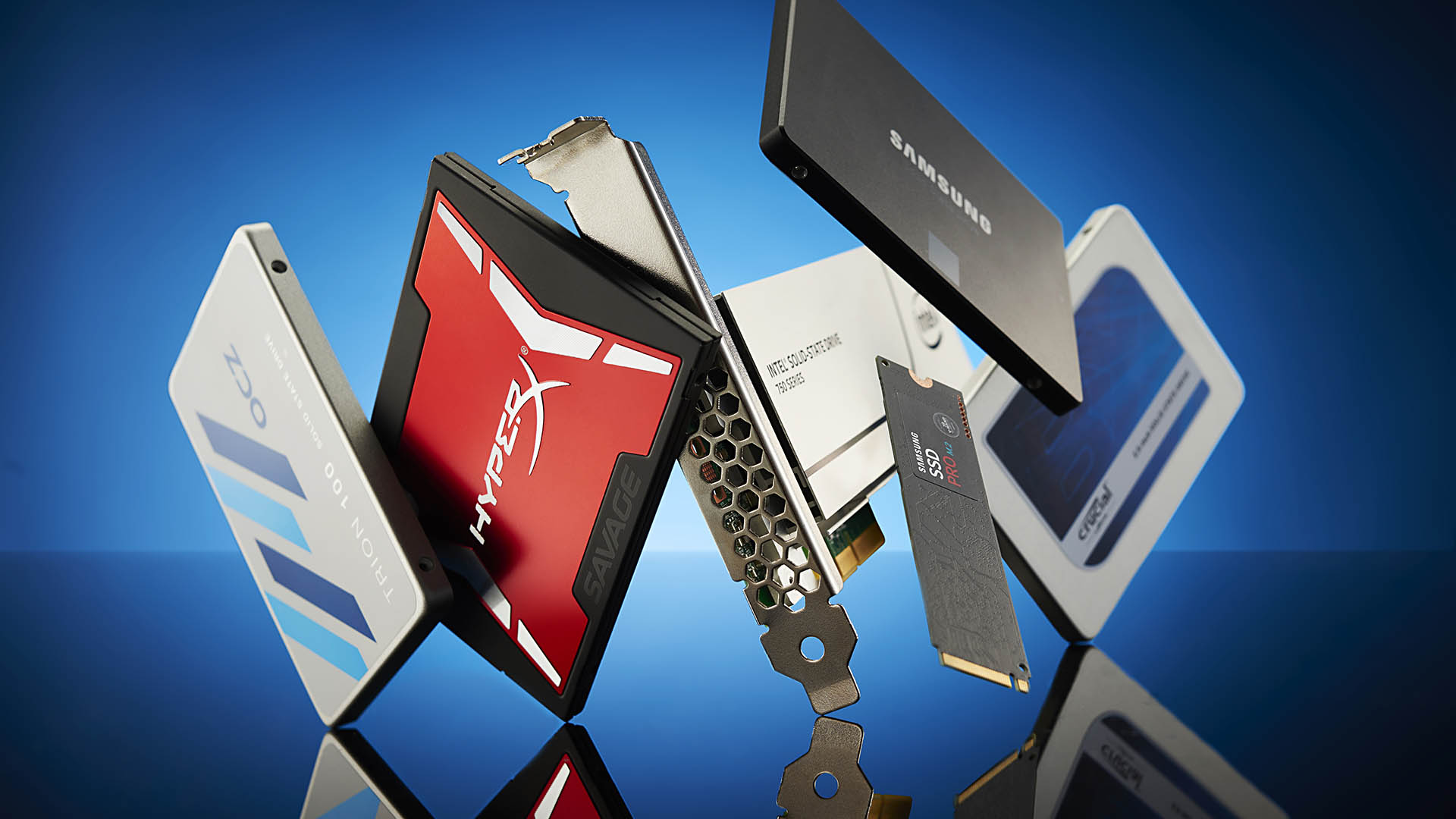So, looks like Intel's top Alchemist graphics cards will be out before the end of October
With Arc's XeSS upscaler being a Day One feature for Call of Duty: Modern Warfare II the GPUs need to be out before October 28.
There's still no solid release date, but at least we now know that Intel plans to release the new Arc A700-series graphics cards by the end of October. October 28, to give it a deadline. That's when Call of Duty: Modern Warfare II launches, and according to the latest Arc teaser video, Intel's XeSS upsampling tech is going to be available from day one.
And, as Intel's Tom Petersen says, the XeSS launch "is going to be coincident with the introduction and availability of our discrete GPUs, no surprise."
We've been waiting a long time for some concrete information about when we might actually see the higher-spec versions of Intel's inaugural Arc graphics cards, after the low-end A380 card launched to little acclaim in China, and everything else was delayed to an ephemeral 'summer' release.
Now we have an end point by which Intel has to call time on fiddling with drivers and just get the damned things released. I mean, the software engineers can always carry on optimising those drivers after all.
'We'll fix it in post…' Says Raja.
The new video, presented by everyone's favourite buddy-movie duo, Tom Petersen and Ryan Shrout, offers some more details about Intel's own upscaler. Think about XeSS along the lines of Nvidia's DLSS and AMD's FSR features, something which will take advantage of the AI processing capabilities of its new Arc discrete graphics cards as well as offer higher frame rates on its integrated GPUs and other manufacturers' cards, too.
And it paints a pretty picture of XeSS, showing healthy performance increases across a bunch of games, and up to a 2.5x increase in the 3DMark XeSS feature test. Though it has already been shown that Intel's new GPUs are hella optimised for UL's benchmarking software, which makes those figures tough to trust.
Keep up to date with the most important stories and the best deals, as picked by the PC Gamer team.
But running in Shadow of the Tomb Raider, with ray tracing enabled too, the effect looks good, with minimal visual artefacts even on the lowest 'Performance' mode. In 'Balanced' mode the game is running at 79 fps at 1440 max RT settings, against 62 fps without XeSS enabled.



It's not just the four-year-old Lara lark and a reboot of an old CoD sequel getting the XeSS treatment, however, as Intel has got another 19 games lined up for launch. Well, either at the launch of Arc proper, or when the games launch if they arrive later than Intel's A700-series GPUs.

Best SSD for gaming: the best solid state drives around
Best PCIe 4.0 SSD for gaming: the next gen has landed
The best NVMe SSD: this slivers of SSD goodness
Best external hard drives: expand your horizons
Best external SSDs: plug in upgrades for gaming laptops and consoles
These range from older titles, such as Hitman 3 or Naraka Bladepoint, to upcoming games, such as Gotham Knights or Arcadegeddon(?).
Like DLSS and FSR, XeSS looks like another solid upscaler that will help negate the higher demands of modern games and their new lighting and rendering techniques, and provide gamers with another way to squeeze some extra performance out of the GPUs.
But, as with all things Arc, it's all going to come down to final execution and how the GPUs actually perform when they're out from under Intel's gaze and in our independent labs with actual release drivers. Which should hopefully be before the end of October, right?

Dave has been gaming since the days of Zaxxon and Lady Bug on the Colecovision, and code books for the Commodore Vic 20 (Death Race 2000!). He built his first gaming PC at the tender age of 16, and finally finished bug-fixing the Cyrix-based system around a year later. When he dropped it out of the window. He first started writing for Official PlayStation Magazine and Xbox World many decades ago, then moved onto PC Format full-time, then PC Gamer, TechRadar, and T3 among others. Now he's back, writing about the nightmarish graphics card market, CPUs with more cores than sense, gaming laptops hotter than the sun, and SSDs more capacious than a Cybertruck.

